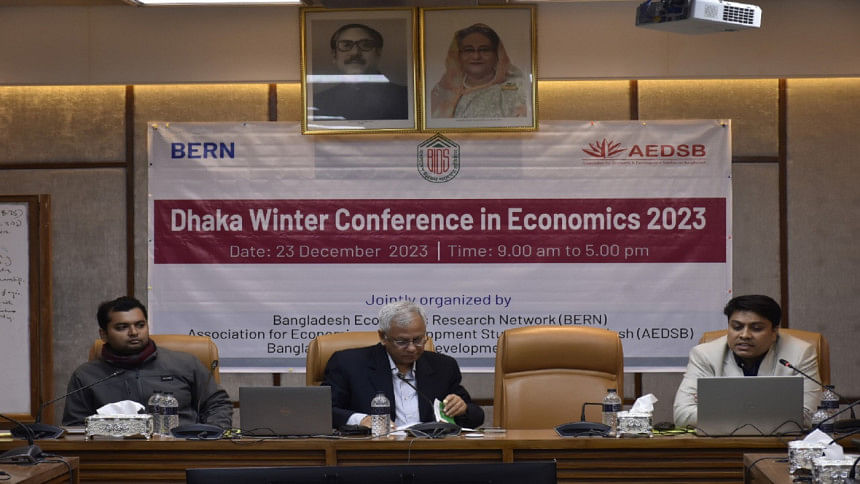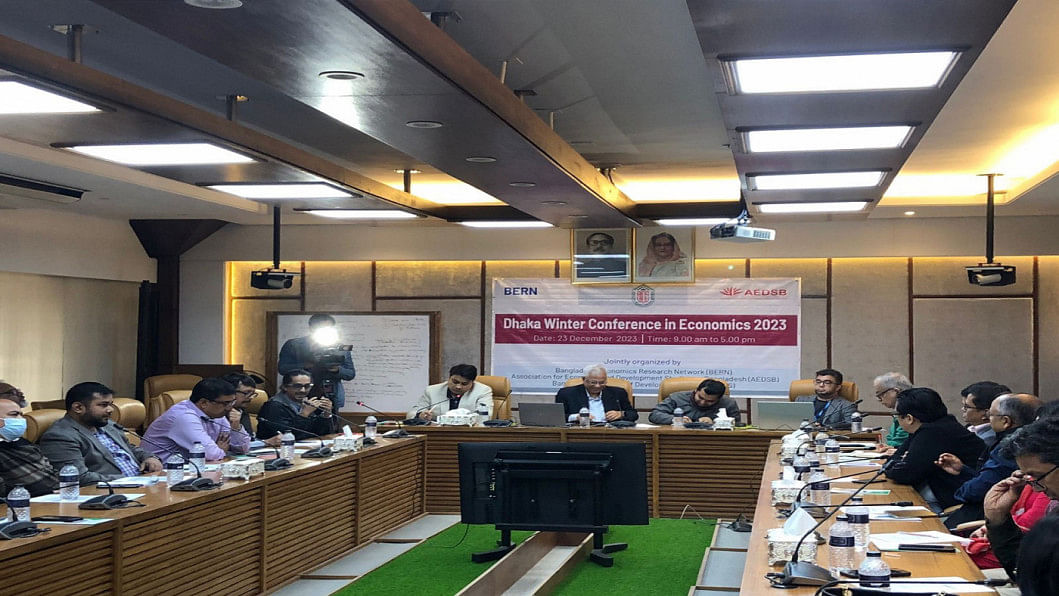Proper design of incentives, honest monitoring to cut bribery, extortion

A proper design of incentives and honest monitoring through the adoption of technologies will effectively reduce bribery and extortion in the public sector, said experts today.
"Incentives will encourage responsible persons to implement tasks properly. And the reduction of extortion and bribery will depend on how to design the incentives in implementing projects," said Fahad Khalil, a professor of economics at the University of Washington.
He made the comments while making a presentation at a session on "Corruption and Incentives" at the Dhaka Winter Conference in Economics 2023, organised by the Bangladesh Institute of Development Studies (BIDS) at its conference room.
"If monitoring is accurate, it will be useful in reducing bribery," Prof Khalil said.
He suggested increasing incentives for better monitoring output.
He said encouraging honesty is often seen as fundamental in the fight against corruption. At the same time, rooting out bribery and corruption is often too costly.
However, he said, honest agents don't require incentives to behave correctly.

According to Prof Khalil, corruption can result in the mis-allocation of talents and society loses contributions from those who can't easily resort to corruption.
The economist called for a "big push" on many fronts to fight corruption rather than sporadic small-scale efforts.
Both Mahbub Ullah, a former professor at the University of Dhaka, and Kazi Iqbal, a research fellow at the BIDS, stressed the need for incentives for better output and reduced corruption, particularly in taxation.
Prof Ullah said: "Incentives should be encouraged instead of corruption."
Binayak Sen, director-general of the BIDS, AK Enamul Haque, a professor of economics at East West University, and Atonu Rabbani, professor of economics at the DU, spoke during the session.
Earlier Md Al-Hasan, a research analyst at the International Food Policy Research Institute, made a presentation on "Intervention in labour market and inequality creation: a natural experiment".
The paper said between 2010 and 2017, private sector wages increased by approximately 90 percent for the least-skilled workers and 140 percent for the most-skilled workers.
The wage growth for moderately skilled workers was around 45 percent. The wage growth for public sector workers ranged between 130 percent and 155 percent.
According to Hasan, the least-skilled workers became relatively poorer compared to public sector workers and most-skilled private sector workers. The entire group of least-skilled workers is subject to increased income inequality, he noted.
If the least-skilled private sector workers' wages and spending remain unchanged, a general price level increase could lead to new poverty cases among them, he said.

 For all latest news, follow The Daily Star's Google News channel.
For all latest news, follow The Daily Star's Google News channel. 







Comments